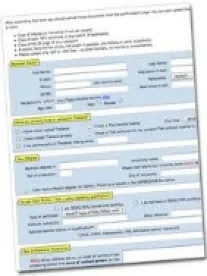New legislation prohibits employers from asking New York City job applicants about their past compensation and benefits.
On April 5, the New York City Council passed legislation prohibiting employers from inquiring about the salary and benefits histories of job applicants in the city. The bill, Introduction Number 1253-A, bars an employer from asking an applicant, the applicant’s current or former employers, or agents or employees of the applicant’s current or former employers about the applicant’s compensation history. It further bars employers from conducting searches of public records for the purpose of obtaining salary history, and makes it illegal to rely on salary history in determining what salary and/or benefits to offer an applicant. Mayor Bill de Blasio is expected to sign the bill into law, at which point it would become effective after 180 days.
The bill follows the passage of similar laws in Philadelphia and Massachusetts, though it clarifies certain issues left unclear in those jurisdictions. The bill explicitly identifies several categories of permissible activity and exceptions:
-
An employer may inform applicants about a position’s proposed or anticipated salary range, and can ask about applicants’ “expectations” regarding compensation.
-
An employer may ask for objective measures of an applicant’s past productivity (e.g., revenue or sales figures).
-
An employer is permitted to discuss an applicant’s expectations with respect to unvested equity or deferred compensation that the applicant would forfeit upon leaving his or her present employer.
-
If an applicant voluntarily and without prompting discloses his or her salary history, an employer may verify and consider such history in making salary or benefit determinations.
-
An employer will not be deemed to have violated the law if a background check intended to verify non–salary-related information ultimately results in salary information being disclosed, so long as the employer does not rely on that information in determining or negotiating the applicant’s compensation.
-
The bill’s prohibitions only apply to new hires, not to applicants for internal transfers or promotions with their current employers.
-
The bill does not apply to public employees whose salaries and benefits are determined through collective bargaining.
-
The bill does not apply where federal, state, or local law specifically authorizes the disclosure or verification of salary history.
Once the bill becomes law, it will appear as an additional unlawful discriminatory practice in the New York City Human Rights Law (NYCHRL). As such, all of the remedies available under the NYCHRL would be available—including, depending on the harm to the plaintiff, monetary damages (e.g., the difference between the compensation of the plaintiff and a comparator), potential fines, and/or injunctive relief (e.g., mandatory training and other remediation measures).
Employers should train every employee involved in the hiring process regarding compliance with this law, ensure that all employment applications and other documents provided to prospective employees during the application process are made compliant, and ensure that procedures are in place to properly document the exchange of relevant information with job candidates. This law also highlights the need for employers to conduct regular, privileged pay equity audits.




 />i
/>i
